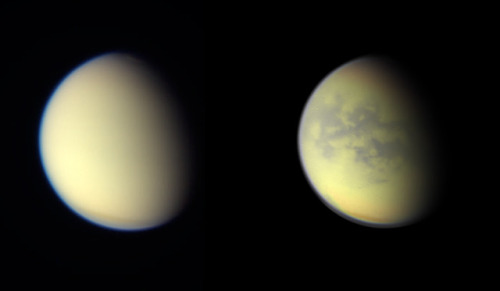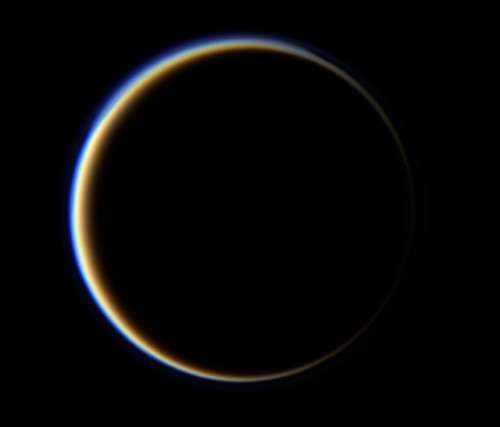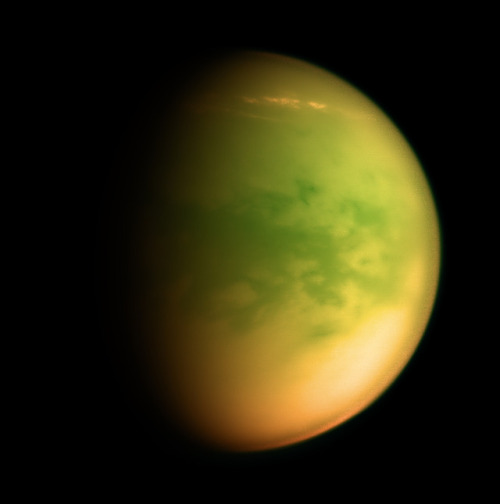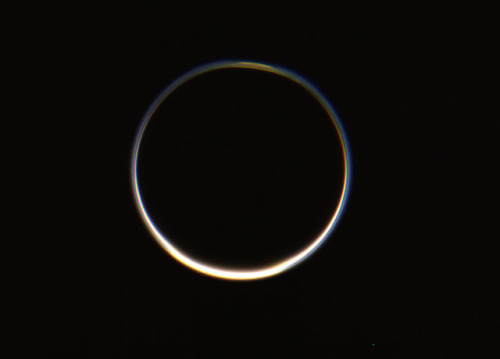Pluto-Like Double World
Pluto-Like Double World

Picture of the Day - October 25, 2018
Two frozen worlds very almost identical in their size ratio to one another as the Pluto-Charon double dwarf planet system.
More Posts from Sharkspaceengine and Others
New Blogs - Coming Soon
To all my followers. I am creating some new blogs to include different interests of mine besides just astronomy and space engine. The first blog will be about rabbits and sharks. I know it sounds like an odd mix, but it covers both my favorites from land and the sea and will include pics of my two buns. A few other possible blogs I might start include general interests, sci-fi stuff, and maybe just thought for the day type material.
The rabbits and sharks blog should be up and running soon.

Picture of the day 2 - November 27, 2018
Tranquil brown ice-giant.
Space Engine System ID: RS 5581-42-7-615383-4492 8





Pictures of the day - December 5, 2018
I apologize for my lack pictures yesterday.
Insight B System - Fourth Planet - Insight B-V
The fifth planet orbiting Insight B is a terrestrial-like planet roughly one quarter the mass of earth (0.27 Earth Masses) and 80% of Earth’s radius (5,093.84 km). It is predominately rocky world with a significant water content in its mantle, surrounded by a thin Carbon Dioxide atmosphere.
The surface is cold with an average temperature of -159 F, and an atmospheric pressure of 0.11 atmospheres. A single small spherical satellite orbits the planet. One day lasts approximately 23 hours 38 mins. Insight B-V orbits its sun at an average distance of 0.97 AU, completing an orbit once every 1.163 Earth Years. The planet is notable for having a retrograde rotation, orbiting almost on its side with an axial tilt of 104°. Considering the planet orbits between two gas giants, the extreme tilt is to be expected.
High Resolution Pictures
Insight B-V
Small Moon
Closeup
Day-time sky
Sunset

Picture of the day - February 14, 2019 (Late Post).
A dark nebula obscures the galaxy.
Double Moons

Picture of the Day - October 17, 2018
A double transit of two moons across the face of a giant ringed planet.

Picture of the Day 2 - October 17,2018
Another wider angle shot






Vernier System - Post 3 (4th Planet)
The system’s 4th plant. This planet is a super-Earth orbiting the two suns at an average distance of 3.79 AU. At 4.66 Earth masses and a radius of 1.71 Earth’s the planet is quite large and massive compared to Earth. It has a hydrocarbon rich atmosphere and an average surface temperature of 187 K or -122 °F. 3 large satellites orbit the planet. The surface show evidence of numerous large impact events.
The plant’s large moons orbit close to the planet and are capable of producing double eclipses, a phenomenon only possible in star systems with more than 1 sun.
High Resolution Pictures
Picture 1 - Large battered world.
Picture 2 - Inner-most satellite occulting the planet.
Picture 3 - Large canyon
Picture 4 - Canyon close-up
Picture 5 - Double Eclipse
Picture 6 - Lunar shadow










Images taken by the Cassini & Voyager spacecraft of Titan, Saturn’s largest moon. Titan is the only moon in the Solar System to have a thick atmosphere and lakes of hydrocarbons (methane and liquid ethane).
To know more about the moon Titan click here
Image credit: NASA/JPL/SSI/Cassini & Voyager ( precessed by: Kevin Gill )

Picture of the day - December 13, 2018
Two large moons cross the face of an ice giant.
-
 sharkspaceengine reblogged this · 6 years ago
sharkspaceengine reblogged this · 6 years ago
My Space Engine Adventures, also any space related topic or news. www.spaceengine.org to download space engine. The game is free by the way. Please feel free to ask me anything, provide suggestions on systems to visit or post any space related topic.Check out my other blog https://bunsandsharks.tumblr.com for rabbit and shark blog.
294 posts

